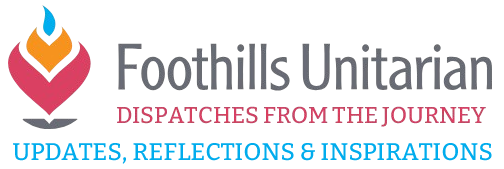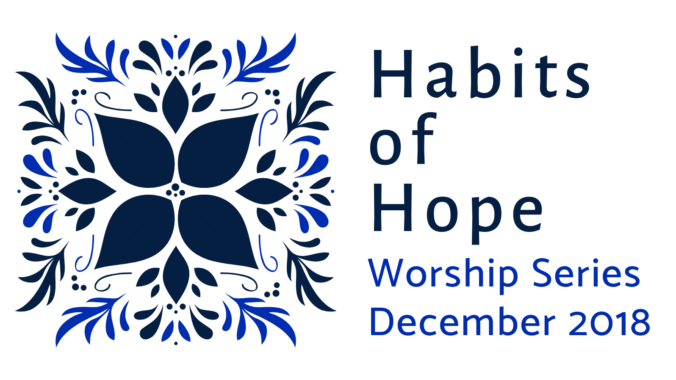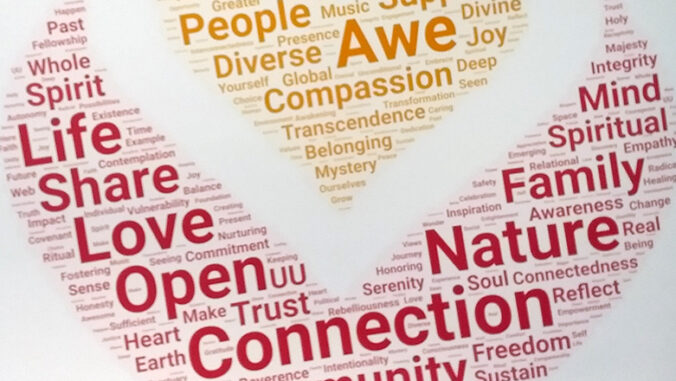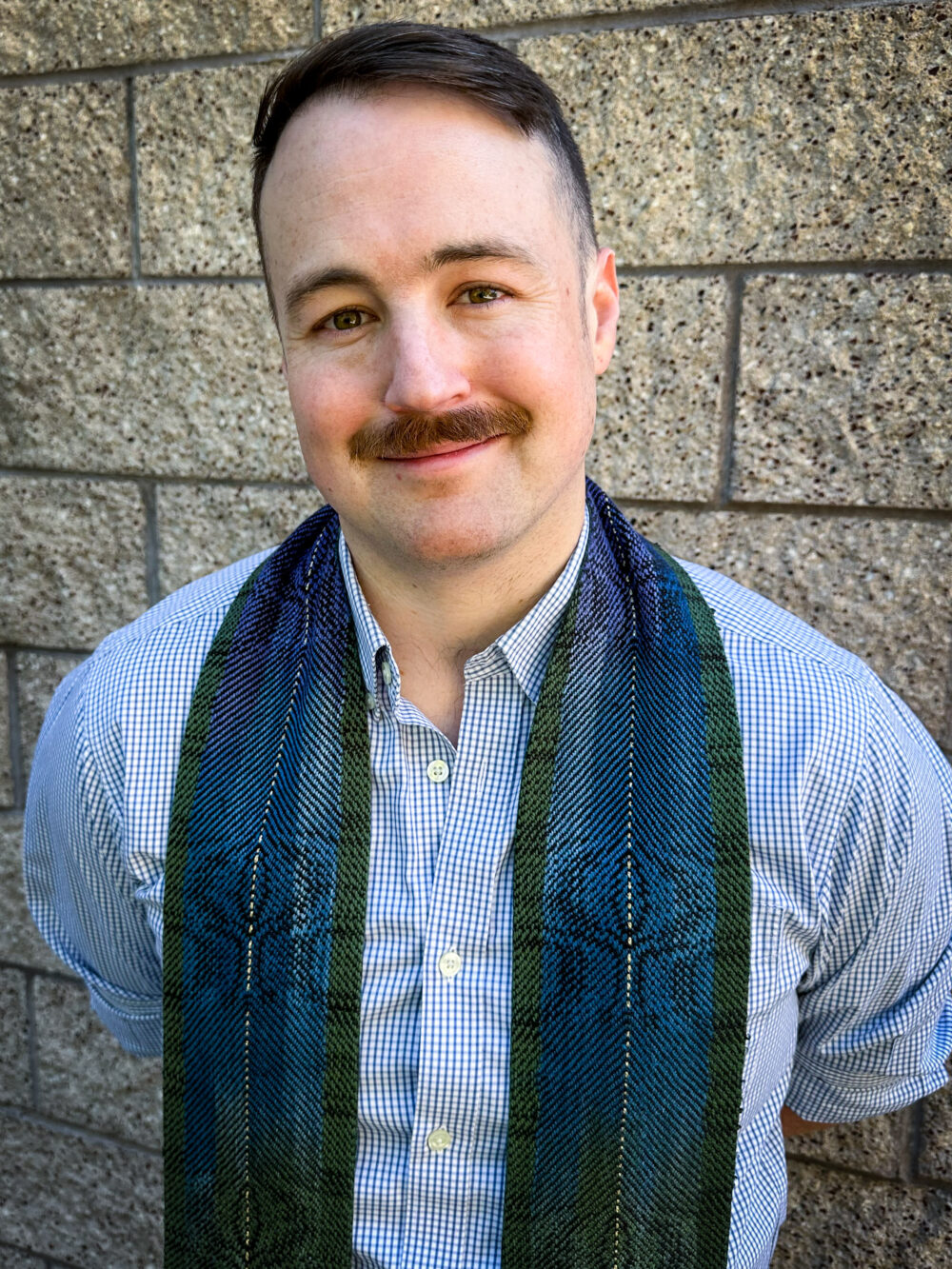The month of December and the surrounding holidays promise joy and hope, and yet in these times, hope can be a real challenge.
Between caring for our loved ones, while also trying to take care of ourselves…all the while absorbing losses or disappointments of all sorts, strained relationships, the challenges of work and community…Even when life shifts bring good news, it can still feel overwhelming, like we can’t quite find solid ground.
And then there’s the wider world.
Even those most optimistic among us can feel pretty unsure where we can or should turn to for real guidance and reassurance that everything will be okay in the end, and the idea of being okay again feels really far off, either way. Longer than a lifetime. More than a generation.
Which is a new feeling for many, and certainly a challenge for the optimism of liberal religion.
Which is why we need to re-orient ourselves to new habits of hope.
Because hope is a habit, a muscle, and a choice. But it’s not a given. It requires our practice, our shared learning, our commitment, even, our discipline.
Over the month of December, we’ll be exploring the habits that help us cultivate hope for the long haul.
Habits where grief leads us not towards isolation or fear, but into a reflex of compassion, and care.
Where we don’t wait for a perfect moment to claim joy, but where joy is always now, even in the middle of everything.
And where we remain open to the mystery of all that is being born, and all that remains unseen.
This is the promise of solstice, and of the Christmas story, and of Hanukkah. And it is the story of our Unitarian Universalist faith.
That truth continues to be revealed.
That into this world there will arrive something totally new.
Something unexpected, yet longed for.
Something powerful, connective, and transforming that will arrive right in the middle of the chaos, in the darkness, in the wreck, in the mess, in the imperfection of regular, everyday life.
Even yours.
Gretchen
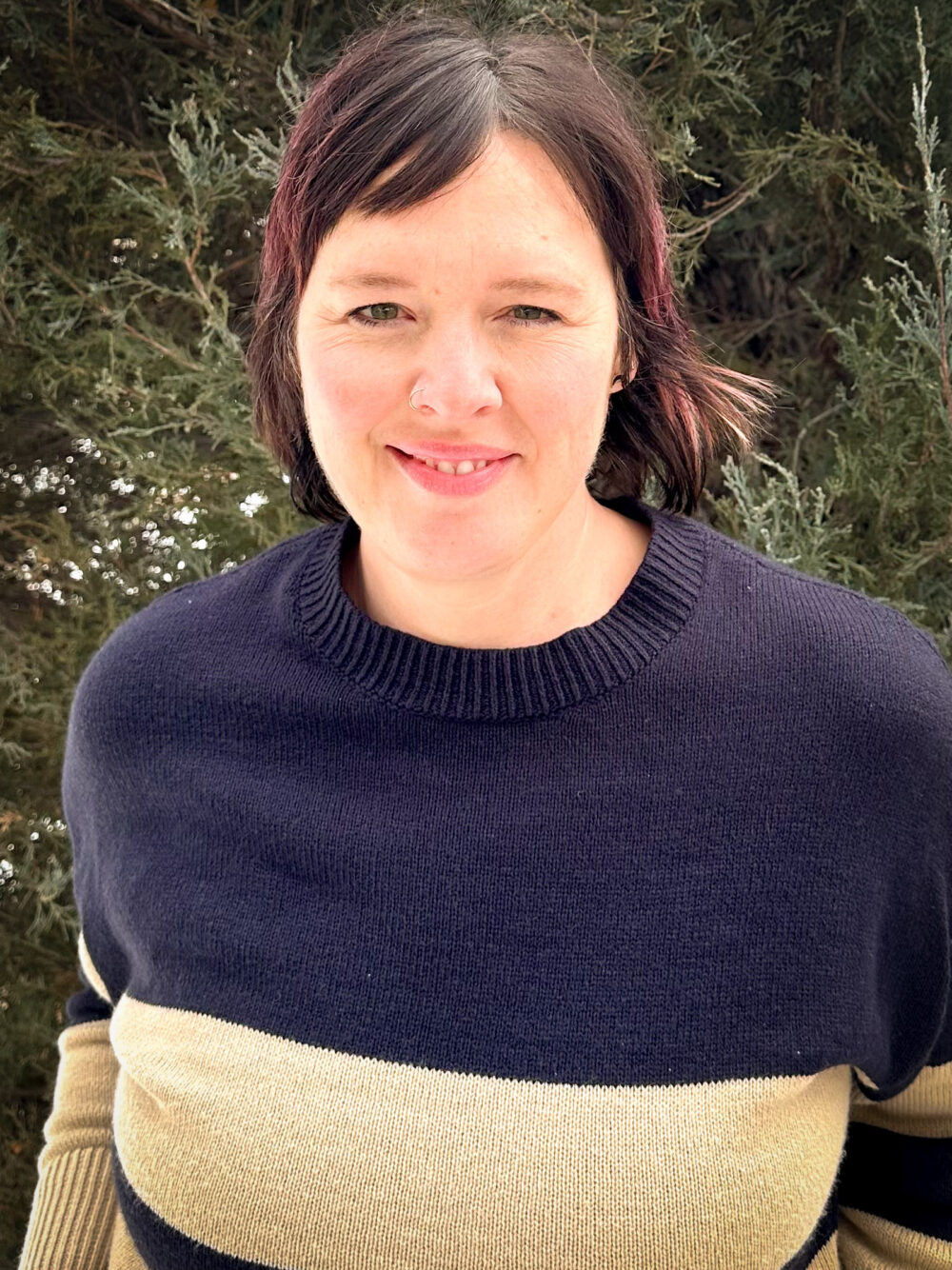
Katie believes the best things in life are the result of collaboration and diverse perspectives coming together to produce something greater than any individual could. She is passionate about systems, efficiency and collaboration for better community outcomes. She loves dreaming up the big picture and drafting the roadmap to make it happen. She has a background in operations, fundraising, communications and program development, as well as over a decade of nonprofit management experience in Northern Colorado.
Her greatest joy in life comes from her family. Her husband, Steven, a principal at Wellington Middle School, and daughters Emmaline and Esmae are the lights of her life. Together they love mountains, music and all kinds of food. She is passionate about women supporting other women in all stages of life and especially through the critical moments that make or break us. She believes that one of the most important things in life is to be kind.
Being outdoors makes her soul come alive. It always roots her in gratitude and is one of the reasons she loves living in Fort Collins.
